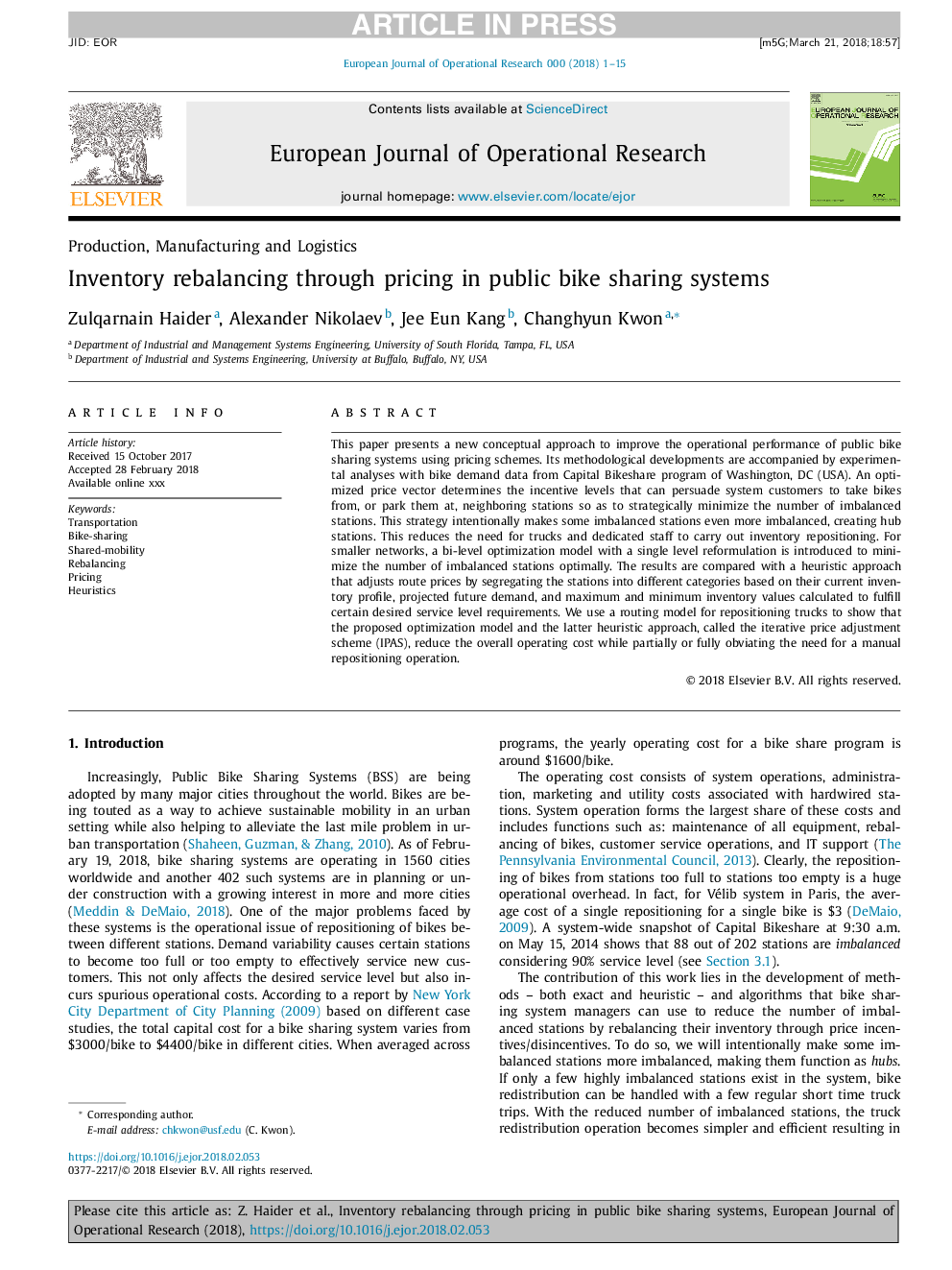| Article ID | Journal | Published Year | Pages | File Type |
|---|---|---|---|---|
| 6894625 | European Journal of Operational Research | 2018 | 15 Pages |
Abstract
This paper presents a new conceptual approach to improve the operational performance of public bike sharing systems using pricing schemes. Its methodological developments are accompanied by experimental analyses with bike demand data from Capital Bikeshare program of Washington, DC (USA). An optimized price vector determines the incentive levels that can persuade system customers to take bikes from, or park them at, neighboring stations so as to strategically minimize the number of imbalanced stations. This strategy intentionally makes some imbalanced stations even more imbalanced, creating hub stations. This reduces the need for trucks and dedicated staff to carry out inventory repositioning. For smaller networks, a bi-level optimization model with a single level reformulation is introduced to minimize the number of imbalanced stations optimally. The results are compared with a heuristic approach that adjusts route prices by segregating the stations into different categories based on their current inventory profile, projected future demand, and maximum and minimum inventory values calculated to fulfill certain desired service level requirements. We use a routing model for repositioning trucks to show that the proposed optimization model and the latter heuristic approach, called the iterative price adjustment scheme (IPAS), reduce the overall operating cost while partially or fully obviating the need for a manual repositioning operation.
Related Topics
Physical Sciences and Engineering
Computer Science
Computer Science (General)
Authors
Zulqarnain Haider, Alexander Nikolaev, Jee Eun Kang, Changhyun Kwon,
